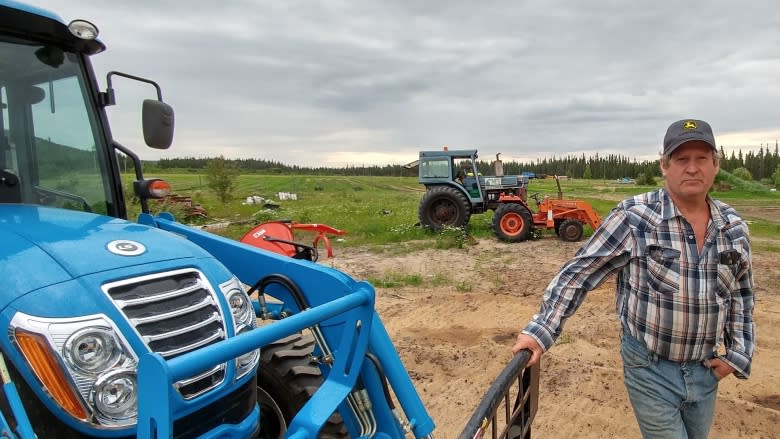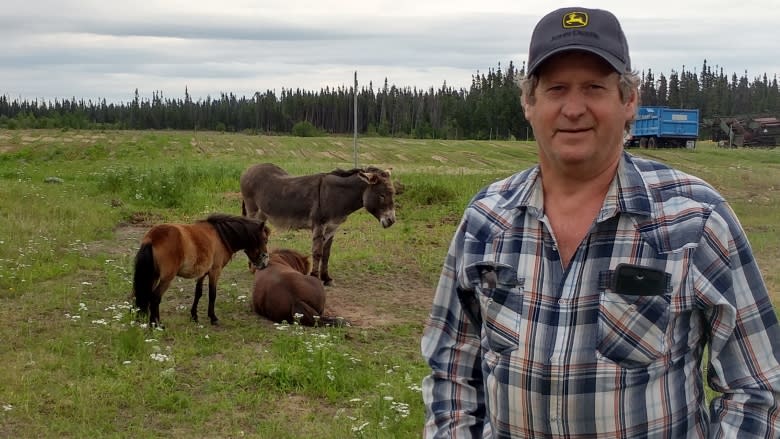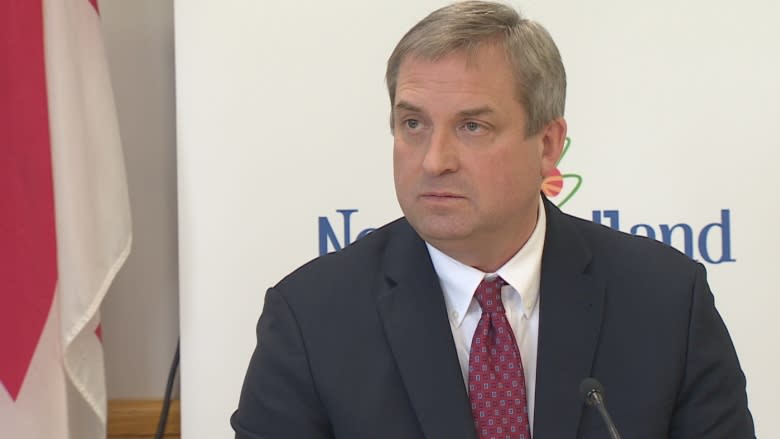Farm leases preserve Labrador's 'precious natural resource', says Gerry Byrne
Amid concerns from farmers that government regulations are restricting Labrador's agricultural growth, Fisheries and Land Resources Minister Gerry Byrne is defending the province's land allocation policies.
Byrne told the CBC's Labrador Morning the province's leased land system is necessary to ensure prime agricultural land is used for its intended purpose.
"The reason why the land tenure is based on a lease and that it's restricted for agricultural purposes is because of, in part, what we know from other places in Canada and the world," Byrne said.
"If you have the right to be able to use the land for whatever you want to use it for, it sometimes moves very quickly out of agricultural purposes."
The practice of granting Crown land to farmers was phased out in the 1970s and replaced with the current lease system. Farmers get a 50 year lease, which is renewable as long as they continue to use the land for agricultural production.
"What the experience has been from other provinces is that agricultural land is precious. It's not chosen because of location," Byrne said. "It all depends on the characteristics of the soil, the climate, and the environment in which it's found."
Start small, prove you can grow
Byrne appeared on Labrador Morning in part to respond to comments made by farmer Tom Angiers, who criticized the department of Fisheries and Land Resources for allotting him only a fraction of the 320-acre parcel of land for which he had applied and paid to have an environmental assessment completed.
"If they had said in the very beginning, 'No, you're only going to have 50 acres,' then I wouldn't have spent all that money and half a year doing the environmental impact review," Angiers said in an interview with CBC.
Byrne calls Angiers desire for a 320-acre farm "ambitious," noting the average farm in Newfoundland and Labrador is about 37 acres. He also explained land leases in the 50-acre range are "not uncommon" as they give farmers an opportunity to test their business plan and farming acumen.
"It's a simple question of put the acreage into production that you have and as your farm grows and you have the capacity, you show you have the capacity to be able to handle that level of production," he said.
Despite the criticisms and concerns, Byrne seems optimistic about the future of agriculture in the province, and specifically in Labrador.
"There's certainly a lot of opportunities to start or to expand existing farms. There's a small, but very, very powerful, very, very effective group of farmers in central and southern Labrador," he said.
"This is a conversation that may not have occurred all that often 15 or 20 years ago. We're talking about growth."





